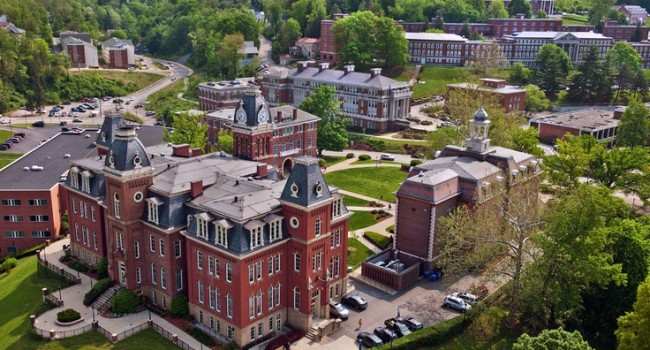The CEO of American Campus Communities Inc., a real estate investment trust that is the largest private dormitory manager in the United States, said West Virginia University is doing everything right when it comes to moving students into university housing for the fall semester.
“From our perspective, universities across America, and certainly WVU under President Gee’s leadership, have done an excellent job preparing campuses to meet the physical distancing requirements, creating flexibility in the delivery of academic curriculum, and taking extra precautions necessary to protect students and faculty,” said Bill Bayless, a WVU graduate who started ACC in 1993.
The Austin, Texas-based company, publicly traded on the New York Stock Exchange, now owns or manages 203 properties on 90 campuses with nearly 140,000 beds across the country. At WVU, ACC developed and manages College Park; developed WVU Honors Hall and owns the U Club Sunnyside.
Bayless, who began his career as a resident assistant at Summit Hall, said his alma mater made the right move by expanding move-in for students over a period of several weeks and assigning time slots to facilitate physical distancing.
“Also, providing for Covid testing and requiring students living in residence halls to be tested the day they move in is a meaningful precaution,” Bayless said in an email to The Dominion Post. “Once students are on campus, it’s up to each individual to do their part in upholding the University’s guidelines and using all of the tools and systems the University has put in place. Just like WVU – universities across the nation – students, faculty and staff are coming together in this mission.”
Other COVID-19 safety measures being taken by ACC at its older properties touchless soap dispensers and hand dryers in restrooms, the addition of step-and –pull attachments, free-swinging bathroom doors, and installing occupancy sensors on light switches.
“Over the past 20-plus years, there’s been a modernization of student housing nationally, with living-learning, apartment-style communities being developed both on and off campus that offer private bedrooms, full kitchens, and private or semi-private bathrooms, ” Bayless said.
“During this time of pandemic these modern products are very well suited for students to control their own sanitization and to isolate and quarantine if necessary.”
One thing that will help keep students safe during the ongoing pandemic is how student housing has changed during the last two decades. Older dormitories going back to the 1950s and 1960s are now considered obsolete because they do not meet students and their parents’ expectations for modern accommodations, technology infrastructure and direct immersion into the university, said Bayless, a Wellsburg native who graduated from WVU in 1986 with a degree in marketing.
“For example at Arizona State University, our largest on-campus partnership, we have developed over 7,000 beds including a residential honors college for both first-year and upper division students, an engineering residential college and a Greek village residential community,” he said.
“In the off-campus market – the evolution has been toward purpose-built student apartments featuring state-of-the-art technology and academic support infrastructure. Both on and off campus, student housing products are being designed to facilitate student success.”
TWEET @41Suzanne




